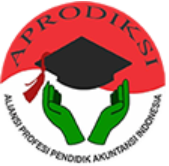KONVERGENSI STANDAR AKUNTANSI DAN DAMPAKNYA TERHADAP PENGEMBANGAN KURIKULUM AKUNTANSI DAN PROSES PEMBELAJARAN AKUNTANSI DI PERGURUAN TINGGI INDONESIA
DOI:
https://doi.org/10.21831/jpai.v6i2.930Abstract
Year 2008 is year plan for DSAK for adopting fully all standard which will be invited byIASB. Since 2005, more than ten new and revised accounting standards released by IASB.IAI-DSAK needs more effort to compliance with FASB. Many new knowledge topics willbe transferred to our student. This need reform to accounting learning approach inIndonesia. There is a need to develop a framework for accounting education that consistentbut flexible to accommodate the majority of the accounting educational needs. Mosteducators recognize that only one accounting curriculum is insufficient to meet the need ofvariety of constituents. Therefore, it is essential to adopt an appropriate general frameworkfor coursework is adopted to address the development of many diverse accountingprograms.Downloads
Published
12/01/2008
How to Cite
Giri, E. F. (2008). KONVERGENSI STANDAR AKUNTANSI DAN DAMPAKNYA TERHADAP PENGEMBANGAN KURIKULUM AKUNTANSI DAN PROSES PEMBELAJARAN AKUNTANSI DI PERGURUAN TINGGI INDONESIA. Jurnal Pendidikan Akuntansi Indonesia, 6(2). https://doi.org/10.21831/jpai.v6i2.930
Issue
Section
Articles
License
Authors who publish with Jurnal Pendidikan Akuntansi Indonesia journal agree to the following terms:
- Authors retain copyright and grant the Jurnal Pendidikan Akuntansi Indonesia journal right of first publication with the work simultaneously licensed under Creative Commons Attribution License (CC BY 4.0) that allows others to share the work with an acknowledgment of the work's authorship and initial publication in this journal.
- Authors can enter into separate, additional contractual arrangements for the non-exclusive distribution of the published version of the work (e.g., post it to an institutional repository or edit it in a book), with an acknowledgment of its initial publication in this journal.
- Authors are permitted and encouraged to post their work online (e.g., in institutional repositories or on their website) before and during the submission process, as it can lead to productive exchanges, as well as earlier and greater citation of published work.






